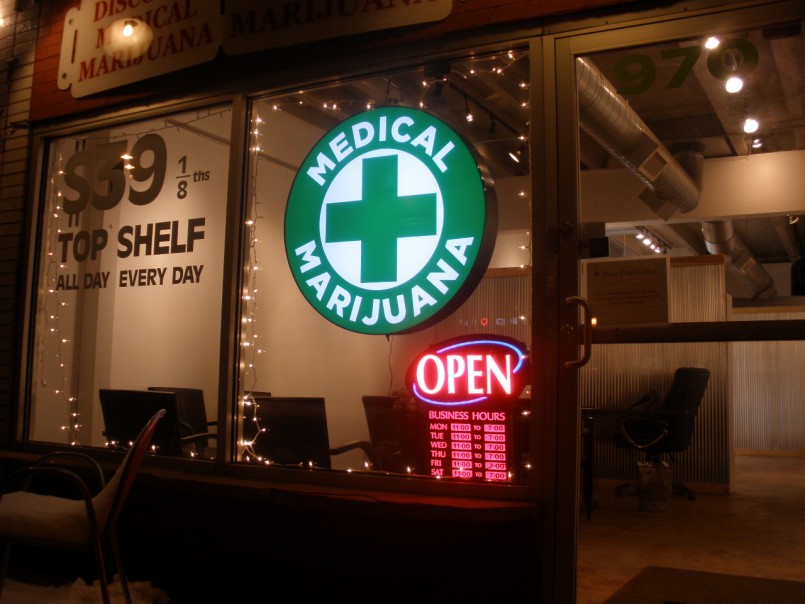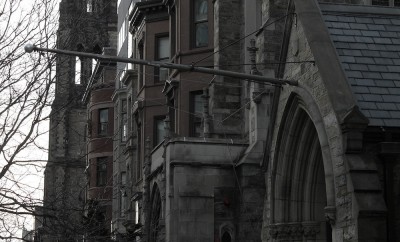Cultures
420 Friendly: The State Of Marijuana Legalization In America

Image: WikiCommons
420 Friendly: The State Of Marijuana Legalization In America
It’s 420, which started as a scheduled pot smoking time for a group of California high schoolers and is now basically a recognized national holiday in the stoner community. All across America, people will be lighting up joints, blunts, and spliffs (which are all different things) to celebrate. And in the many places in America where recreational pot is still very illegal, police officers will be using this opportunity to make some easy arrests when smokers emerge from their homes and dorm rooms to navigate their mental haze in search of snacks.
Fortunately for them, this may be one of the last 420’s where pot is still illegal in most of the U.S. A slim majority of Americans are now in favor of marijuana legalization and some presidential candidates have even called for its legalization. Ok, well a few have. Really, just Bernie Sanders. But, that’s still pretty good. Can you imagine any serious candidate in 2008 advocating legalization? And of course, all of that ignores the legalization of Marijuana for medical use which has taken place in almost half of the country.
That kind of support has really been seen working on the state level in places like Colorado, Oregon, Washington, and Alaska, which have decriminalized small amounts of recreational Marijuana.
So what has the effect been of these tentative steps towards legalization on America’s favorite illicit drug? Let’s take a look.
It’s driving the price down, which should be welcome news to 420 celebrants. The average price of an oz of weed has dropped to $286 dollars, though you can get it for just $190 in Oregon, which has the cheapest prices in the nation. Essentially this is because the price of weed is pegged to its illegality. You are paying more for it to compensate everyone involved in its production for the legal risks they incur. Even with taxes, legal producers can afford to charge less, which means a supply of cheaper weed on the market, which drives down the price everywhere.
This cut in price is also having another pleasant side effect besides people just being able to get high for less money, it’s cutting into the bottom line of the Mexican Drug Cartels. The lower price of weed is providing less incentive to move Marijuana across the border, and seizures have fallen dramatically over the past few years. All of this reduces the revenue flowing into criminal hands, and the Cartels have been forced to compensate by switching to other drugs, or even trying to improve the quality of their crop to keep up with the perception that weed grown in the US and Canada is better than that grown in Mexico.
The economic dynamics of legalization in the US is also having an impact on where Marijuana is sold domestically. Though it is still illegal for growers in states like Oregon to export their product to other states, many do, simply because profits are much higher when you sell it in a state like Idaho which doesn’t have legalized Marijuana. In Idaho, which borders Oregon, seizures of Marijuana have sky-rocketed over the past few years, with most of the pot beings seized believed to come from Oregon. Experts estimate that as much as 80% of the product grown on the West Coast is being shipped to other states.
Of course, saying that any of this is “legal” is kind of inaccurate. Marijuana is still illegal at the Federal level, meaning that if the DEA wanted to, it could swoop in and arrest every pot grower without a license to produce medical marijuana it could find. Thus far, however, the Government has largely signaled that it has no intention to do so, meaning that pot sits in a weird legal gray area, which has made taxing it problematic for everyone.
So what about the rest of the country, where pot is illegal to buy except for medical purposes? This weird set of laws has created a system where quasi-legal operations have essentially been popping up just to certify people for medical Marijuana by diagnosing them with depression or chronic pain. It’s a dumb system that everyone is flagrantly abusing but the state governments have thus far been unwilling to either crack down on it or just go ahead and make pot legal to sell.
It is a system that makes everyone dealing with it operate inside the legal gray area the laws themselves inhabit.
So what do you think? Should pot be legal? What sort of effects would marijuana legalization have? Let us know in the comments.





0 comments